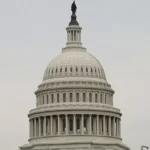The (formerly) prestigious Harvard University, long revered for its commitment to Veritas—truth—has come under scrutiny for actions perceived as betraying this foundational principle.
Harvard's Troubling Departure from Veritas
Martin Kulldorff, a former Harvard biostatistician and infectious disease epidemiologist, recounts his departure from the institution amid the COVID-19 pandemic, attributing it to a steadfast adherence to scientific truth in the face of widespread institutional censorship and suppression of dissenting views.
Harvard's preemptive move to online learning in March 2020, ahead of any governmental directive, set a precedent for nationwide school closures and lockdowns—a response that Kulldorff and others argue was detrimental, given the virus's inevitable global spread and the disproportionate impact of such measures on various societal sectors.
Sweden's Contrarian Approach: A Case for Open Schools
Kulldorff highlights Sweden's refusal to close schools or impose lockdowns, focusing instead on protecting the elderly, as a rational alternative that the rest of the world, including the United States, failed to consider. Despite maintaining open schools, Sweden recorded zero COVID-19 deaths among children aged one to 15 during the spring of 2020, challenging the effectiveness and morality of blanket school closures.
Kulldorff's inability to publish his views in American media, alongside the silencing of other public health scientists advocating for targeted protective measures, underscores a troubling trend towards censorship and intellectual conformity within the scientific community.
The Academy for Science and Freedom: Hillsdale College's Response
In response to the perceived erosion of academic and individual freedom in the name of science, Hillsdale College established the Academy for Science and Freedom. This initiative aims to promote the free exchange of scientific ideas and underscore the symbiotic relationship between freedom and science in the pursuit of truth.
The Academy focuses on educating policymakers and the general public about significant scientific discoveries and ideas that risk being overlooked due to prevailing narratives enforced by scientific journals and corporate media. It serves as a bastion for free, reasoned, and civil discourse in scientific research, particularly on issues of public health, offering a counterpoint to the suppression of dissenting voices witnessed during the pandemic.
Censorship's Toll on Science and Society
The COVID-19 pandemic has laid bare the detrimental effects of censorship and the suppression of scientific debate. Institutions and media that quickly aligned with consensus views on pandemic management, such as lockdowns and school closures, did so at the cost of ignoring alternative, potentially less harmful approaches.
The Academy for Science and Freedom, alongside critics like Kulldorff, argue that the suppression of dissenting scientific opinions not only undermines the integrity of scientific inquiry but also inflicts lasting damage on public trust and the ability to navigate future public health crises effectively.
Restoring Integrity and Trust in Science
Both the saga at Harvard and the mission of the Academy for Science and Freedom call for a reevaluation of the relationship between science, freedom, and society. The path forward necessitates a renewed commitment to academic freedom, open debate, and the free exchange of ideas.
Only through a culture that values and pursues truth above consensus can science hope to regain public trust and ensure its survival as a pillar of democratic society. As both Kulldorff's experience and the creation of the Academy illustrate, the fight for intellectual freedom and integrity in science is crucial for the advancement of knowledge and the betterment of humanity.
The controversies surrounding Harvard's approach to the COVID-19 pandemic and the broader issues of censorship in the scientific community spotlight the critical need for platforms that champion academic freedom and open discourse.
The Academy for Science and Freedom's establishment by Hillsdale College emerges as a timely and necessary endeavor to safeguard the essence of scientific inquiry and its indispensable role in advancing public understanding and policy. As society grapples with the lessons of the pandemic, the imperative to uphold the values of veritas, freedom, and reasoned debate has never been more apparent.

Lifelong bacon junkie. Lifelong internet fanatic. Hipster-friendly travel aficionado. Twitter lover. Avid food buff. Incurable travel trailblazer.
















